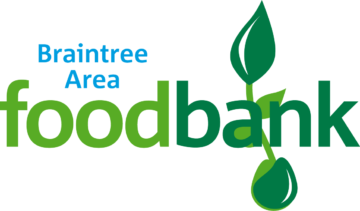STATE OF HUNGER:
KEY MESSAGES FOR STATE OF HUNGER MAY 2021
Our new research reveals the extreme poverty faced by people at food banks going into the pandemic, with just £248 a month on average to survive on after housing costs. This isn’t right. We’re calling on governments at all levels to commit to working to end the need for food banks for good.
- No one should be faced with the indignity of needing emergency food. But our research finds certain groups of people in our communities across the UK are disproportionately affected by extreme poverty.
- More than six in ten (62%) working age people referred to a food bank in early 2020 were disabled – that’s three times the rate in the general working age population.
- Almost one in five (18%) households referred to food banks during the pandemic were single parents – that’s more than twice the rate in the general population (8%).
- This isn’t right. We know hunger in the UK isn’t about food, it’s about people not having enough money for the basics.
- Extremely low income is a key factor in driving people to food banks. The average monthly household income after housing costs for people who needed to use a food bank was just £248, or £8 a day for a couple without children. This needs to cover energy and water costs, council tax, food, and other essential costs and is just 13% of the average national income.
- In fact, 95% of people referred to food banks in the Trussell Trust network are living in ‘destitution’ – this means people cannot afford to eat and stay warm and dry.
- The main reason people had such low income was due to social security payments failing to cover the cost of living, according to the research. This was more often than not due to the design of the system, with issues such as the five-week wait for a first Universal Credit payment highlighted.
- We know people living in extreme poverty risk being further pulled under by difficulties, such as debt and mental health issues.
- In mid-2020 nine in 10 households at food banks were in debt, while six in 10 had arrears on bills and owed money on loans.
- 47% of all people using food banks and 41% of disabled people referred were indebted to the Department for Work and Pensions (DWP) making it the main creditor to people at food banks.
- People experiencing poor mental health at food banks in the Trussell Trust network grew from more than half (51%) in early 2020 to almost three quarters (72%) in mid-2020.
- With high rates of unemployment and redundancies, more people than ever are now likely to need our social security system to provide a lifeline to keep them afloat
- The government should start with keeping the £20 increase to Universal Credit introduced during the pandemic but set to be removed in the autumn.
- We need to change the conversation around poverty and take action together to build a hunger free future. We’re calling on government at all levels to commit to working to end the need for food banks.
- It’s time for government at all levels to make this a priority – to recognise that they have the power to deliver the changes we need to work towards a hunger free future where we can all afford the basics.
- We need government to commit to ending the need for food banks and developing a plan to do so
- We’re asking you, the public, to make your voice heard by signing up to our Hunger Free
Future movement (www.trusselltrust.org/hungerfree) and becoming part of a new conversation about destitution in the UK.
